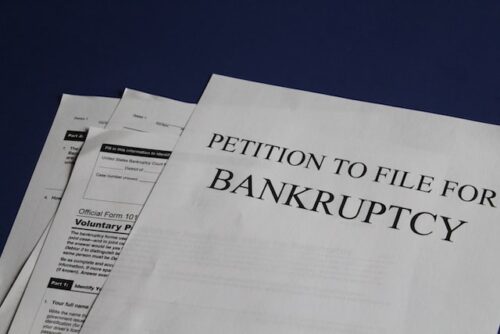
Estate planning is something that many put off until it’s unfortunately too late. The earlier you can start your estate plan, the better. However, there are some things in life you can’t plan for, including bankruptcy. If you declare bankruptcy and pass away during the process, understanding how it will affect your estate plan is essential to protecting your loved ones and assets for the future. The following blog explores how bankruptcy can disrupt your estate planning process and how a Washtenaw County estate planning attorney can help you navigate the process.
What Is Bankruptcy?
Bankruptcy is a legal process that involves petitioning the Federal Court to absolve your debt. However, this is not an uncomplicated process, as those who file for bankruptcy will experience extreme disruptions to their credit score. Those with an overwhelming amount of debt left may not have any other option, and bankruptcy can offer them a fresh start.
When individuals file for bankruptcy, they will proceed down one of two paths – chapter 7 or chapter 13. Chapter 7 is a more straightforward process that involves liquidating your assets and using them to pay off your debts, and whatever is not used is absolved. Chapter 13 can be more complex. This is because it involves creating a three-to-five-year payment plan to pay off your debts without surrendering your assets. Both options will impact your credit score for ten and seven years, respectively.
How Will It Impact My Estate Plan?
If you pass away during the process of filing for bankruptcy, it’s essential to understand how the beneficiaries of your will are impacted is essential, as the process doesn’t stop in the event of your death. Generally, chapter 7 bankruptcy is much simpler, as the assets in your will are liquidated and paid to creditors. Whatever remains in your will is distributed to your beneficiaries.
Chapter 13 is more complex, as this involves a payment plan you signed and agreed to. However, the executor of your will has options for how to proceed. They can petition the court for a hardship discharge, case dismissal, or convert the case into a chapter 7 filing to speed up the process. Your executor can continue to pay off the debt until the end of the contract as usual if they choose.
Can an Attorney Help Me?
If you plan on filing for bankruptcy, contacting an estate attorney is vital to protecting your assets. Unfortunately, there are a number of issues that can arise from this situation, and an attorney can help advise you on the best way to proceed with the filing.
Similarly, should you become the executor of an estate where the wills creator passes away, ensuring you reach out to a lawyer is essential to help guide you through the process of handling an estate in bankruptcy is crucial to making the process simple. At Collis, Griffor & Hendra, we have the necessary experience to help you navigate this complicated situation. Contact us today to learn how we can help you.
